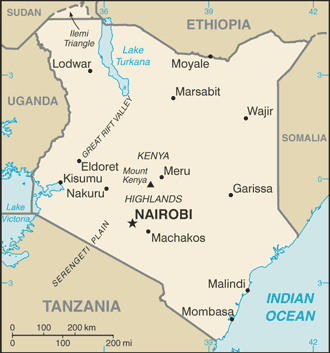The Kenyan government has launched a 10-year National Strategy for the Control and Eradication of Peste des Petits Ruminants (PPR), a highly contagious small stock disease that mainly affects sheep and goats.

The plan, which details actions to be taken to eliminate PPR between 2018 and 2027, was launched by Department of Livestock Principal Secretary Harry Kimtai in Nairobi on July 18.
Kimtai said PPR was first detected in Kenya in 2006 in Turkana county. Despite mass vaccination programs, it has spread to most of the arid and semi-arid areas of Kenya.
Comically Incorrect Comics, Volume I
He said the PPR presents major food and human security threats: “This disease affects sheep and goat production. These are key animals to the rural smallholder economy, and as such there is an urgent need to eliminate it,” Kimtai said.
He said the 2006 PPR outbreak in Kenya killed over 1.2 million sheep and sheep, dealing a severe blow from which the small-stock agricultural sector has yet to recover.
Kimtai said the first outbreak of the disease dealt a severe blow to the largely pastoralist rural economy of the country. More than 1.2 million were lost to the epidemic.
- Rift Valley fever: Researchers develop approach to develop the ability to improve predictions of the emergence
- Aum Shinrikyo: A look back at the terror
- Nashville: Hepatitis A outbreak rises to 56, free vaccine offered at LGBTQ entertainment venues
- Swine flu outbreak spreads in Namibia
- Stray cattle derail Botswana’s fight against FMD outbreak

